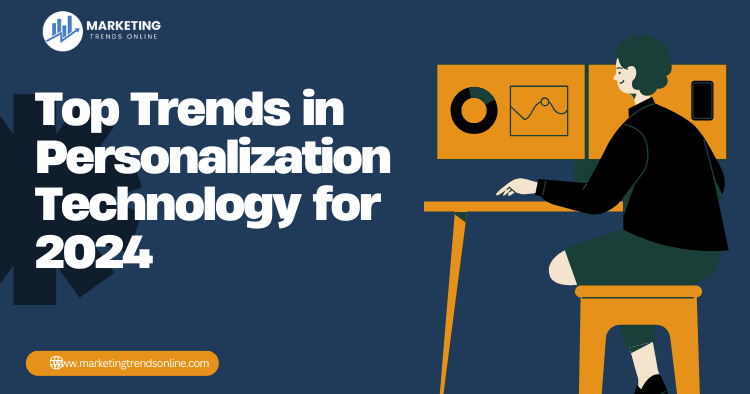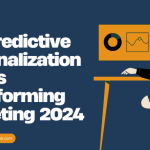Table of Contents
- Introduction
- AI-Driven Personalization
- Hyper-Personalization
- Data Privacy and Ethical Personalization
- Omnichannel Personalization
- Real-Time Personalization
- Voice and Visual Search Personalization
- Conclusion
- FAQs
Introduction
As we step into 2024, the landscape of personalization technology is evolving at an unprecedented pace. Consumers today expect tailored experiences, and businesses are leveraging innovative technologies to meet these demands. From artificial intelligence to omnichannel strategies, this blog will explore the top trends shaping personalization technology this year. Let’s dive in!
AI-Driven Personalization
Artificial Intelligence (AI) is at the forefront of personalization technology, enabling businesses to analyze vast amounts of data quickly and accurately. In 2024, AI algorithms are becoming more sophisticated, allowing for better customer segmentation and targeted marketing.
How AI Enhances Personalization:
- Predictive Analytics: AI can anticipate user behavior based on historical data, making it possible to offer tailored recommendations.
- Natural Language Processing (NLP): This technology enhances customer interactions by understanding user preferences and sentiments through their communications.
Did You Know? According to a report by McKinsey, companies that effectively leverage AI in personalization can increase their sales by 10-30%. For more insights on AI’s impact on marketing strategies, check out 10 innovative content marketing strategies for 2024 success.
Visual Element:
| AI Personalization Benefits | Description |
|---|---|
| Better Customer Insights | Enhanced understanding of customer preferences and behaviors. |
| Increased Engagement | More relevant content leads to higher interaction rates. |
| Higher Conversion Rates | Targeted offers result in improved sales outcomes. |
Hyper-Personalization
Hyper-personalization takes personalization a step further by utilizing real-time data and advanced analytics to create highly tailored experiences for individual users. In 2024, brands are focusing on micro-segmentation to deliver messages that resonate on a personal level.
Key Features of Hyper-Personalization:
- Dynamic Content Delivery: Websites and marketing materials adjust in real time based on user behavior.
- Behavioral Targeting: Monitoring user interactions to offer customized recommendations that evolve with user preferences.
Pro Tip: Brands that implement hyper-personalization see a significant boost in customer loyalty and retention. For a deeper dive into content personalization trends, refer to top 7 content personalization trends for 2024-2025.
Data Privacy and Ethical Personalization
With the rise of personalization technology, data privacy concerns have also escalated. In 2024, businesses must navigate the fine line between personalization and privacy. Ethical personalization is becoming essential, focusing on transparency and user consent.
Best Practices for Ethical Personalization:
- Clear Communication: Ensure customers understand how their data is being used.
- Opt-In Mechanisms: Provide users with the option to personalize their experience and control their data.
Important Resource: For guidelines on ethical data practices, refer to the GDPR Compliance Guidelines. Understanding these practices is crucial, especially in light of the data privacy trends shaping marketing in 2024.
Omnichannel Personalization
Consumers today interact with brands across multiple channels, including websites, mobile apps, social media, and in-store experiences. Omnichannel personalization ensures a cohesive experience regardless of the touchpoint.
Benefits of Omnichannel Personalization:
- Consistent Messaging: A unified approach helps maintain brand integrity.
- Seamless Customer Journey: Customers receive personalized recommendations tailored to their behavior across channels.
Statistic Alert: According to a study by Salesforce, 70% of consumers expect connected experiences across channels. For insights into channel strategies, check out top 7 content distribution trends to watch in 2024.
Real-Time Personalization
Real-time personalization has become a game-changer in 2024. By leveraging data analytics and AI, businesses can deliver personalized content instantly, enhancing user engagement and satisfaction.
Advantages of Real-Time Personalization:
- Immediate Relevance: Users receive offers or content that match their current interests.
- Higher Engagement Rates: Personalized experiences in real time lead to increased actions from users.
Example:
Imagine a user browsing an e-commerce site. With real-time personalization, the site may recommend products based on the user’s current browsing history, creating a tailored shopping experience. This approach ties closely with the trends in long-form content and engagement strategies.
Voice and Visual Search Personalization
As voice assistants and visual search technology continue to gain traction, brands are adapting their personalization strategies accordingly. In 2024, optimizing for voice and visual search will be crucial for staying relevant.
Key Considerations:
- Voice Search Optimization: Brands should focus on natural language queries, anticipating how users ask questions verbally.
- Visual Recognition: Utilizing AI for image recognition allows for personalized recommendations based on visual input.
Quick Tip: Ensure your website is optimized for voice search to capture a growing segment of users relying on this technology. For further reading, explore top 7 voice search optimization strategies for 2024.
Conclusion
As we look ahead to 2024, personalization technology continues to evolve, driven by advancements in AI, data analytics, and changing consumer expectations. By embracing these trends, businesses can create meaningful experiences that foster loyalty and drive growth. The future of personalization is bright, and those who adapt will thrive in the competitive landscape.
FAQs
1. What is personalization technology?
Personalization technology refers to tools and strategies that allow businesses to tailor experiences, content, and recommendations to individual users based on their preferences and behaviors.
2. Why is personalization important for businesses?
Personalization enhances customer engagement, improves user satisfaction, and drives higher conversion rates, ultimately leading to increased sales and loyalty.
3. How can businesses ensure ethical use of data in personalization?
Businesses can ensure ethical use of data by being transparent about data collection practices, allowing users to opt-in, and adhering to regulations like GDPR.
4. What role does AI play in personalization?
AI plays a crucial role by analyzing large datasets to identify patterns, predict behaviors, and automate personalized content delivery.
5. How can I implement real-time personalization on my website?
To implement real-time personalization, leverage analytics tools to track user behavior and use AI algorithms to adjust content and recommendations automatically.
For more insights on personalization technology, visit Forrester’s research on customer experience. Also, don’t miss the trends in data-driven marketing strategies.





